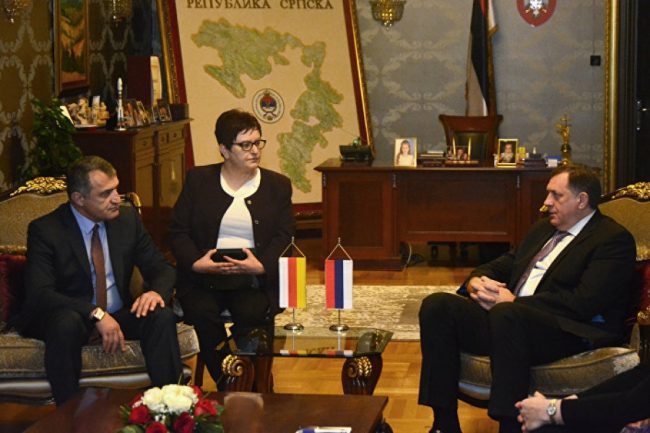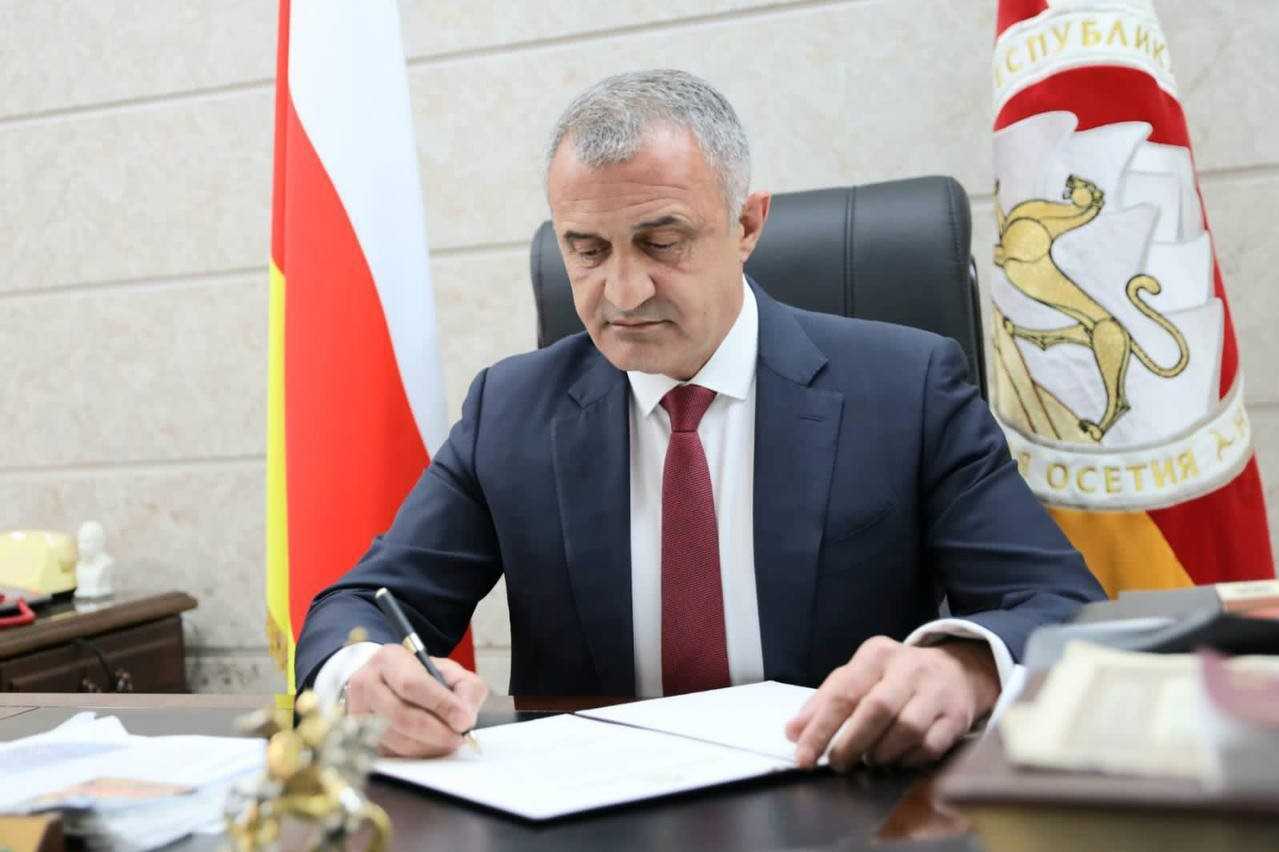

 South Ossetian leader Anatoly Bibilov has visited Bosnia’s Republika Srpska, opening South Ossetian representation in Banja Luka. The visit has sparked controversy in both Georgia and Bosnia and Herzegovina.
South Ossetian leader Anatoly Bibilov has visited Bosnia’s Republika Srpska, opening South Ossetian representation in Banja Luka. The visit has sparked controversy in both Georgia and Bosnia and Herzegovina.
Bibilov joined celebrations on 9 January to mark the Day of Republika Srpska, a controversial celebration in Bosnia due to its ethnic nationalist background. It has been banned by Bosnia’s Constitutional Court on the grounds that is it discriminatory against Republika Srpska’s non-Serb citizens.
This year’s celebration marked 26 years since the proclamation of Republika Srpska as an ethnically Serb entity in Bosnia and Herzegovina, in an attempt to remain part of Yugoslavia along with Serbia and Montenegro.
Republika Srpska is now one of the two entities making up Bosnia and Herzegovina, along with the predominantly Bosniak and Croat populated Federation of Bosnia and Herzegovina.
‘A great honour’
Republika Srpska’s nationalist, pro-Russian leader, President Milorad Dodik, who has long professed a desire to secede from Bosnia, used the occasion to call for the republic’s unification with Serbia.
The South Ossetian leader met with Dodik and congratulated him.
‘We are very pleased to visit the Republika Srpska on this festive day. On behalf of South Ossetia, I wish your republic peace and prosperity’, RFE/RL’s Ekho Kavkaza quoted Bibilov as saying.
Dodik thanked Bibilov and said it was ‘a great honour for the Republika Srpska to receive the President of South Ossetia’.
During a meeting between Dodik and Bibilov on 10 January, a protocol on ‘cooperation between South Ossetia and Republika Srpska’ was signed, as well as a protocol on cooperation between United Ossetia and the Alliance of Independent Social Democrats, the two leaders’ political parties.
Bibilov also opened representation for South Ossetia in Republika Srpska’s capital, Banja Luka.
Diplomatic fallout
The visit caused controversy in both Tbilisi and Sarajevo, with Georgia sending a diplomatic note to Bosnian authorities criticising about Bibilov’s visit.
In response to Georgia’s diplomatic note, the Bosnian Foreign Ministry said the two countries had ‘good and friendly relations based on mutual respect for territorial integrity and sovereignty’. According to them, Bosnia’s central authorities were not informed of Bibilov’s visit.
‘[The delegation] are in Republika Srpska, not in Bosnia and Herzegovina’, Dodik responded to the note. He also said that Georgia was ‘hostile to the Republika Srpska’, adding that they consider that ‘cooperation with legitimate republics and nations is normal’.
Bibilov has also invited Dodik to visit Tskhinvali (Tskhinval) on 26 August, to celebrate ‘the tenth anniversary of the recognition of South Ossetia’s independence by the Russian Federation’. The event followed the 2008 August War, which Georgia and most of the international community claim ended in Russian military occupation of two of Georgia’s regions.
Only four countries recognise South Ossetia as independent, including Russia, which maintains a large military presence there.
According to Dnevnik.ba, a Bosnian media outlet, Bibilov said that ‘South Ossetia and the Republika Srpska have a very similar path’, adding that ‘just as Serbs are divided into Serbia and the Republika Srpska, Ossetians are divided into South Ossetia and North Ossetia’.
South Ossetian leaders have long campaigned for unification with North Ossetia within the Russian Federation.
In an April 2017 referendum, a majority of South Ossetia’s population voted in favour of adding ‘the State of Alania’ to South Ossetia’s name. The name change has been interpreted as a symbolic step towards asserting a shared historical heritage with the Russian Republic of North Ossetia–Alania.
There is debate within South Ossetia over whether they should aim to join Russia as a separate republic, unify with North Ossetia–Alania, or to be an independent country. The referendum was condemned by Georgia, the US, and the EU, who consider South Ossetia to be part of Georgia.
Bibilov’s visit will last until 13 January.
For ease of reading, we choose not to use qualifiers such as ‘de facto’, ‘unrecognised’, or ‘partially recognised’ when discussing institutions or political positions within Abkhazia, Nagorno-Karabakh, and South Ossetia. This does not imply a position on their status.









